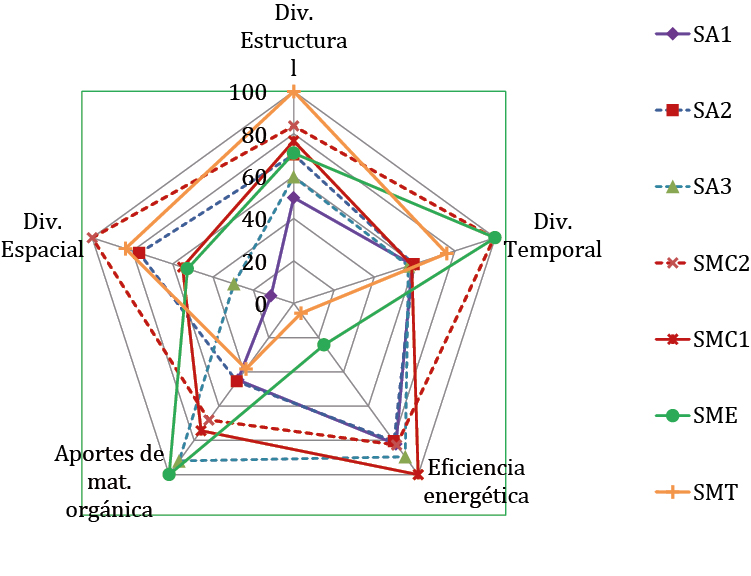Productive diversity and its influence on the organic contributions and energy efficiency, in extensive systems of the Centre of Cordoba, Argentina
Keywords:
agrodiversity, organic matter contributions, energy efficiency, livestock intensificationAbstract
The processes of agriculturization-sojization and the retraction and intensification of livestock in the province of Córdoba, reduced the productive diversity of the farming systems, leading to simple, fragile, little resilient and highly subsidized systems. The adoption of the simplification model is not homogeneous and some family farmers introduce strategies such as a greater crops and pasture diversity, inclusion of animal production and alternative technological management that affect the circulation of organic matter and energy flow. To analyze this situation, 7 establishments of different productive and trophic diversity were studied. Land use and technological management data were recorded in an average of 3 campaigns and spatial and temporal diversity indexes, contributions of organic matter and energy efficiency were calculated. The results indicate that productive diversification and agricultural-pastoralist integration have favorable effects, especially in mixed breeding systems, that optimize the circu¬lation of matter and energy flows. Agricultural systems have less productive diversity, greater energy efficiency but with a lower contribution of organic matter. In situations of livestock intensification there is a decrease in energy efficiency and organic contribu¬tions, negatively affecting the sustainability of production systems.

Downloads
Published
Issue
Section
License
Aquellos autores/as que tengan publicaciones con esta revista, aceptan las Políticas Editoriales.


